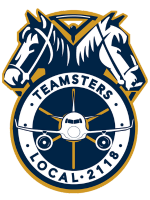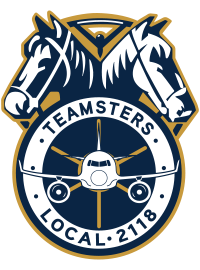Negotiating Committee – April 14, 2025
| Reorganizing for Strength! |
 |
| Fellow Pilots:
Forced Work + No Preferences = Less Pilots This is a simple, data-driven exercise that you can imagine for yourself. If you own a business and can force your employees to work at-will, on the days of your choosing, you need significantly less people in your workforce. In the case of an airline, if your only “structural” limits are FAR Part 117 rules and a few limited scheduling provisions, both the number of pilots in the workforce and the resultant quality of life for those pilots who remain reduce dramatically. Our pilots are a resource to invest in, not simply a property-like cost that must be controlled as management prefers. Management has not been coy about their desire to minimize headcount and increase productivity through force. The only cost is your quality of life, your real earnings, and fewer pilots on property – sacrifices management is obviously willing to make. Management repeats the “unique business model” and “operational necessity” excuse, hoping for emotionally driven concessions. Fortunately, data is not swayed by emotion. High unstacking/forced work is not a “necessity for our unique operation” and the data proves it. Removing your seniority from the equation and forcing work is a wholly unacceptable concessionary proposal that predates these negotiations. The idea that giving management a concessionary contract is necessary for the company’s survival is nonsense. In conjunction with a strong business model, a fair contract increases productivity and profits. Airlines like Southwest and Alaska achieved record earnings under new pilot contracts, while still respecting seniority and providing for a decent quality of life. Allegiant would be wise to do the same. Continued Clarification Regarding Current CBI There continues to be some misinformation regarding schedule, specifically that the company’s offer is superior to CBI with respect to honoring seniority and preferences. It is worth repeating that CBI is a 0% unstacked solution as guaranteed by the Bloch award. The company’s proposal on PBS represents a major concession from the current contract. Some think, “My schedule is great, I don’t see the problem”. Your schedule is satisfactory because the Bloch award guarantees that your seniority is honored in CBI. The status quo will change and will be worse under the company’s proposal. In the company’s proposed scheduling environment, broad, new unstacking rights would give the company the ability to ignore seniority and build schedules entirely at management’s discretion. Management has previously made it clear that any improvement to pilot pay must be tied to concessions in scheduling. In their proposal, you are buying your pay rates through giving up seniority, your quality of life, and sacrificing our junior pilots. As any labor union would, we find this proposal wholly unacceptable. Disciplined Bargaining The RLA bargaining process is time consuming, difficult, and frustrating. Many pilots question why we remain in mediation when the company and Union have not been able to reach an agreement on fundamental working conditions while management engages in bad faith behavior, shows a lack of cooperation, and disregard for the bargaining process. First, the National Mediation Board alone determines if and when the parties are released from the mandatory mediation process. Second, as discussed below, we wanted to use all of the means at our disposal to try to reach an agreement before we requested a release to self-help, which is a costly, last resort option available to both parties if released from mediation by the NMB. Because of its potential economic impact, self-help is never the desired outcome, but sometimes the only viable way to reach a fair and enforceable agreement. There is no operational need for the company’s concessionary and extreme bargaining demands. Moreover, through deliberate stalling, misinformation campaigns, and bad faith tactics, management has attempted to use mandatory mediation time to wear down and divide the Union. They know that the RLA process requires the parties to spend a substantial amount of time in negotiations before being released by the NMB, and they attempt to use that delay to their advantage—engaging in “surface bargaining” to make minimum progress while creating division in our ranks in an attempt to entice pilots to accept concessions and settle for less. Instead of frequently complaining, we used a disciplined, data-driven approach to provide solutions to each and every company problem they presented, no matter how “unsolvable” or trivial, in an attempt to reach agreements; we could not. We kept detailed records of the company’s behavior, including shifting positions, their near “unsolvable” parameters and frequent obstructionism. We believe a 30-day cooling off period, followed by self-help, if no tentative agreement is reached, is necessary to produce a contract. We have a well-documented, evidence-based case to present to the National Mediation Board (NMB) should a status meeting be granted. Our reports include a detailed record of why we have reached an impasse, the company’s conduct at and away from the bargaining table, the Union’s good-faith efforts, and our conclusion that a release to self-help is justified and necessary to reach a fair agreement. Based on our filing to the NMB requesting release from mediation, some of our pilots have additional questions regarding the NMB bargaining process, the status of mediation, and the possibility of self-help. Over the next several updates, we will attempt to answer all of your outstanding questions. Additionally, expect more communication and to receive a Strike Preparation Handbook from the SPC. 1. Is there a timeline or time limit for the NMB to respond to the Union’s request “for a proffer of arbitration”? No. The NMB has full discretion and there is no mandatory timeline to respond to a request for a proffer of arbitration, the formal name for a request to be released from mediation. There is no statutory deadline and the NMB will base their decision on multiple factors. A status meeting between the parties and the NMB may occur before a decision on our proffer request will be made. During the status meeting, the Union will present its evidence-based case for how the company’s proposals and conduct have created the current impasse. If a status conference occurs, management will also be given the opportunity to present its case. 2. How long does the process generally take if the mediator grants our request? When can self help begin? To clarify, while mediators provide their opinion to the NMB, mediators do not grant or deny a request for a proffer of arbitration. A proffer request and related decisions are made by the three member, presidentially appointed NMB members. If the NMB makes the proffer of arbitration and either party rejects arbitration (which the Union will), then the 30-day cooling-off period before self-help can legally begin starts immediately. The parties can lawfully engage in self-help immediately after the cooling off period expires. 3. What is self-help and what can the Union do during that time? It is commonly misunderstood that self-help simply means a strike alone. In reality, self-help applies to both parties equally under the law. During self-help, the Union may legally strike the employer, either in full or in an intermittent, unpredictable fashion. At the same time, the employer can lock out employees and unilaterally change wages, rules, and/or working conditions (e.g., implement the “mailer”) in an attempt to encourage pilots to cross the picket line to work (“scabbing”). An employer can also attempt to hire replacement workers, although the training for flight crews makes this costly and impractical. 4. If the NMB grants our request, what should we expect and how long will it take? There is no timeline for the NMB to make a decision on a request for a proffer of arbitration/release. If the NMB decides to make a proffer, the parties will be notified that the NMB has terminated its services and is making a proffer of binding arbitration. The parties will either accept or reject arbitration. If either or both parties refuse arbitration, the NMB immediately releases the parties into a 30-day cooling off period. During the 30-day period, it is common for the parties to engage in “super mediation.” This is a compressed period of multiple, intense bargaining sessions with the intent of reaching an agreement to avoid a strike. If this does not lead to an agreement, the parties will be released to self-help at the end of the cooling off period. 5. If the NMB does not grant the request, what happens? If the NMB believes that further mediation without economic pressure could be productive and lead to an agreement, the request may be denied. The parties will remain in mandatory mediation. The Union believes that it has gone well beyond every reasonable effort to make an agreement. We do not believe further “no stakes” mediation will lead to an agreement. Your Duty as a Pilot Consider the source; they’re not “just like us” – Regardless of their flying background, managers are just that, managers. They aren’t “just like us” and they aren’t “here to help.” These former line pilots are not like you and do not bargain for your best interest. Most have vested stock options, the freedom to control their own schedules, and they won’t live under the contract they are negotiating “for you.” Should they ever return to the line, they’ll have the privilege of avoiding the worst of whatever is negotiated through their seniority. Report Illegal Behavior – By law, management cannot interfere with union affairs in any manner, especially one which affects their ability to bargain or represent its members. Inappropriate and reportable behavior includes, but is not limited to:
Report any suspected violations to negotiations@apa2118.org. As we prepare for a potential status meeting with the NMB, additional reports will be particularly useful over the coming days and weeks.
In Unity, Captain Joshua Allen Captain Jay Killen Captain J.R. Lynch Captain Jim Cole
|
 |
|
Copyright (C) 2025 Allegiant Pilots Association, Teamsters Local Union 2118. All rights reserved. You are receiving this email as a member of APA Teamsters Local 2118. |
